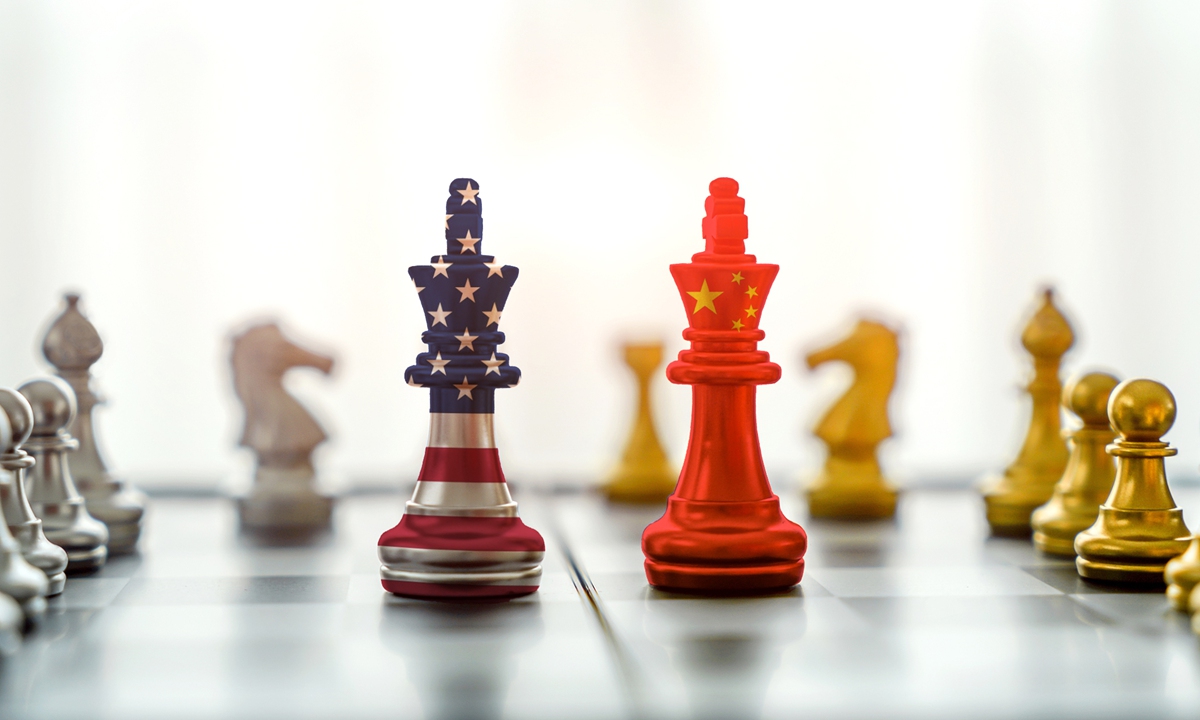US urged to reflect and coexist
By Chen Qingqing and Zhang Han Source: Global Times Published: 2020/7/20 22:33:41
Cautious China won’t sit still to provocation: expert

China US
While the world closely watches whether China-US relations - the most important bilateral ties - would drift toward war, the Chinese envoy to the US called on Washington to make a fundamental choice about coexisting with China. The US should act in a restrained manner and give up on challenging the bottom line of China before the situation gets out of control, Chinese observers warned.
Faced with growing tensions with China, the US has to deal with a fundamental question whether it is ready to live with another country with a very different culture and political and economic systems, Chinese Ambassador to the US Cui Tiankai told CNN in an interview over the weekend.
Chinese diplomats have been voicing their concerns over deteriorating China-US ties, which are considered at an all-time low in decades as the Trump administration has been taking a harsh stance on a series of issues, such as China's national security law for Hong Kong region, the South China Sea, the island of Taiwan, and the human rights in Northwest China's Xinjiang Uygur Autonomous Region. Before Cui commented on China-US relations, Chinese Foreign Minister Wang Yi harshly criticized Washington for pursuing its egoism, unilateralism and bullying policy to the extreme.
China's policy toward the US is consistent, which is to take divergences under control without seeking confrontation. However, as the US presidential election approaches, it's hard to ease tensions, especially in terms of US politicians' rhetoric concerning China, Lü Xiang, a research fellow on US studies at the Chinese Academy of Social Sciences in Beijing, told the Global Times on Monday.
"Such rhetoric is driven by emotions, considering that the US is facing growing chaos and panic amid the COVID-19 epidemic. It's hard for them to be rational at this point," Lü said.
Sunday marked the 41st straight day that the seven-day average for new daily coronavirus infections in the US trended upward, the Washington Post reported on Monday. More than 3.7 million cases have been detected in the US, and at least 137,000 people have died, the report said.
The disastrous handling of the outbreak has left the Trump administration much more eager to shift the responsibility to other countries, and China has become its primary target. The Washington-led smear campaign has been escalating into a war of words between the two countries.
More recently, as the presidential campaign heats up, Trump's team is also using China as one of its lines of attack against Joe Biden, while Republicans' internal memo earlier exposed their anti-China strategy serves as a strategy for running the campaign.
The election creates uncertainty for bilateral relations, but confrontation is inevitable no matter which party wins, Li Haidong, a professor at the Institute of International Relations of the China Foreign Affairs University, told the Global Times on Monday.
China has been cautious in responding to US provocation and hate policies. But it is uncertain what the other side would do afterwards, and China will not sit still if the US makes further military provocations in the South China Sea or tears the three Joint Communiqués and takes action over the Taiwan question, Li said, noting the risk of regional skirmishes is escalating.
No matter what card the US plays and what strategy it takes toward us, domestic stability, prosperity and cohesion are the key to China's dealing with sinking China-US relations, Li said.
Cui emphasized that China is always ready and open to work together with the US government, with any administration. "And we still have confidence in the goodwill of the American people, and have the same kind of goodwill toward the American people," the ambassador added.
As great powers, big countries bear heavy responsibilities not only for ourselves but also for the world, we really have to base our policies on common interests, on growing global challenges and what the international community expects us to do, and not allow suspicion, fear, or even hatred to hijack our foreign policy, Cui noted.
"As long as the US does not further provoke China, it's likely the two sides would handle the situation in more peaceful way," Lü said.
Posted in: DIPLOMACY